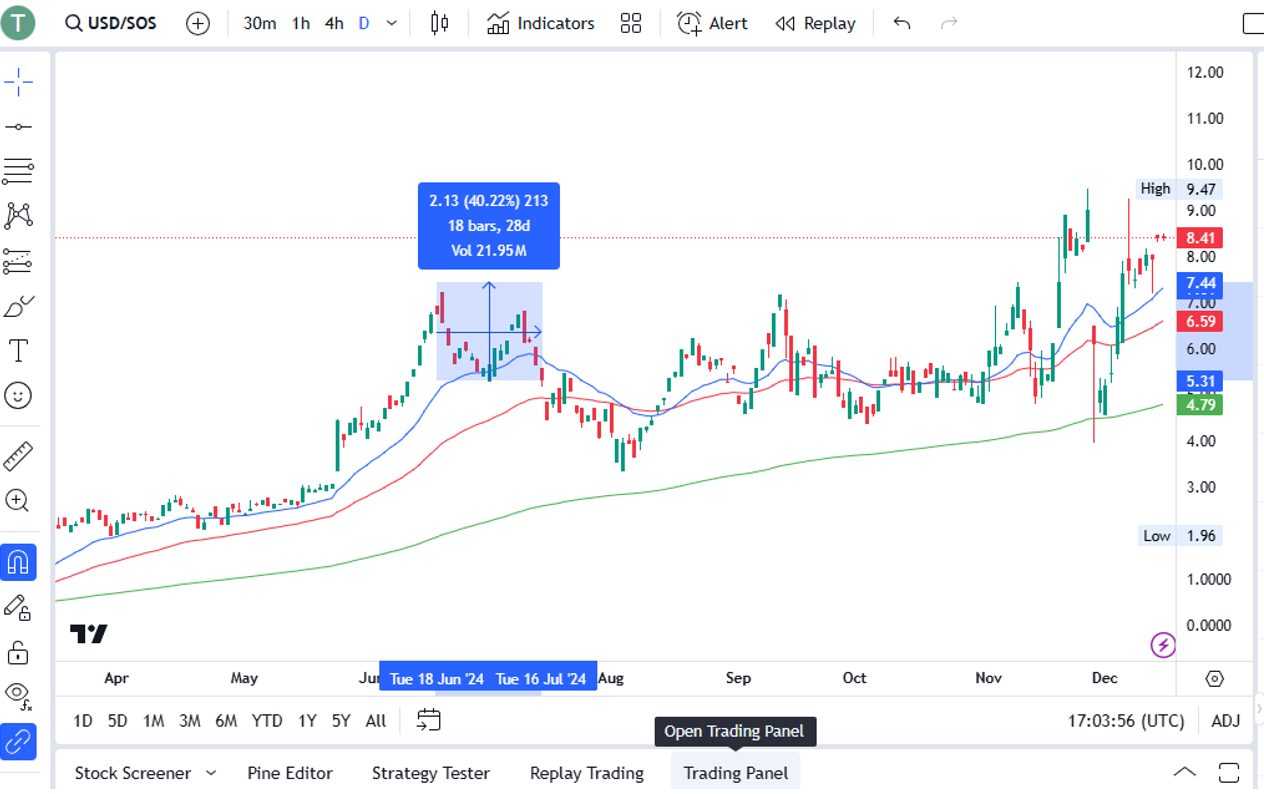CFD Trading In Somalia



Contracts for difference (CFDs) are accessible to residents in Somalia, offering low-cost trading and leverage to maximize profits.
This guide to CFD trading in Somalia explains how these instruments work, highlighting their benefits, risks, and local considerations, along with an example trade to help you get started.
Quick Introduction
- CFDs enable traders to profit from upward and downward price changes in assets like livestock – a key export in Somalia – without physical ownership.
- CFDs also provide access to international markets, giving Somali traders exposure to assets unavailable in the local economy, such as global stocks and indices.
- Leverage allows Somali traders to control larger positions with smaller capital, increasing both gains and potential losses.
- Somalia’s financial sector, managed by the Central Bank of Somalia (CBS), lacks specific oversight for CFD trading, leaving traders reliant on international brokers.
- Tax laws on CFD trading profits are vague in Somalia, with rates likely ranging between 6% and 18%, depending on the income structure.
Best CFD Brokers In Somalia
After thorough testing, we’ve identified the top 4 international CFD brokers for traders in Somalia:
How Does CFD Trading Work?
CFD trading means you can buy or sell an asset without owning it. Instead of buying or selling physical gold, you can speculate on whether the price will go up or down and potentially profit from rising and falling prices.
Leverage in CFD trading means you only need to put up a percentage of the cost of the position (known as ‘margin’) to get exposure to the trade’s full value. It’s important to keep in mind that leverage means potential profits and losses can be amplified.
Imagine a hypothetical CFD trade on 50 Tesla shares; with the share price at $900 per share, you’ll only require $9,000 to access a $45,000 position as your margin is only 20% of the $45,000 trade value ($9,000).
What CFDs Can I Trade?
The range of CFD trading opportunities will vary depending on your broker, but Somali traders may find the following markets of interest:
- Forex CFDs: Trade major currency pairs such as EUR/USD, GBP/USD, and USD/CAD, along with minor and exotic pairs. For local relevance, Somali shilling (SOS) pairs like USD/SOS and EUR/SOS may appeal, though these pairs can come with wider spreads and limited availability.
- ETF CFDs: Access ETFs with exposure to African markets, such as VanEck Africa (AFK), iShares MSCI South Africa (AFK), and BondBloxx USD High Yield Bond Energy Sector ETF, providing opportunities tied to regional economic growth and investment trends.
- Stock CFDs: CFDs on local companies such as Highview Technologies (HVT), Golis Telecom (GOL), Iguhallee Real Estate (IGRE), or Somali Postal Express (SPE), may be enticing. However, Somalis tend to speculate on stocks from major global markets, including US, European, and Asian exchanges, which are more widely supported with superior liquidity.
- Commodity CFDs: Somalia’s key commodities like bananas, fish, charcoal, and scrap metal, which play vital roles in the country’s economy and export sectors, are not generally available on trading platforms. However, precious metals like gold and silver or softs like cocoa and wheat are better supported.
- Crypto CFDs: Trade popular digital assets such as Bitcoin, Ethereum, and various altcoins without needing to hold or secure the underlying tokens.
- Index CFDs: While indices with Somali exposure are uncommon, traders can access major global indices like the US Dow Jones or UK FTSE 100. These provide opportunities to capitalize on broader market trends and international economic movements when local options are limited.
Is CFD Trading Legal In Somalia?
CFD trading is permitted in Somalia, although there is an absence of a regulatory framework for CFD trading found in some other African countries.
Finding credible domestic brokers can be challenging, exposing traders to potential fraud, scams, unauthorized trading, or mishandling of funds. International brokers operate in Somalia, offering stronger protection for traders.
Is CFD Trading Taxed In Somalia?
Somalia’s general tax system is still developing and doesn’t currently have a specific framework for taxing CFD trading profits, making it uncertain for traders.
Personal income tax rates generally range from 6% to 18%, which you may be liable for on any returns from CFD trading activities.
I suggest consulting local tax professionals familiar with Somali tax laws to ensure you meet your tax obligations.
A Trade Example
Let’s bring CFD trading in Somalia to life through an example trade of a USD/SOS currency pair.
Analysis
As a technical trader, I rely on the momentum bounce strategy when trading CFDs on daily and lower timeframes. I buy or sell when the price approaches a support level or begins showing signs of reversal, aiming to capitalize on short-term price “bounces” or corrections.
I often use the 20-day moving average as a dynamic support or resistance level, entering long or short positions when price action reacts off this indicator.
To refine my entries, I incorporate stochastics, trend lines, and the 200, 50, and 20-day simple moving averages to identify key support and resistance zones and confirm trade timing.

Trade Entry And Exit
I executed the trade on the daily timeframe using confirmed and established support and resistance levels.
I used the 1-hour chart for a tighter entry, setting a buy order at 5.66 and entered on the close of the first candle, bouncing off the 20-day moving average. I set my take profit order at 7.00 and exited in profit.
I never risk more than 1% of my account balance on a single trade, always setting stop-loss orders to limit downside risk and take-profit orders to secure gains as soon as my target is hit.
Bottom Line
CFD trading allows Somalis to access a wide range of global markets with the added benefits of putting down modest deposits and using leverage.
Keep in mind, though, that leverage can magnify both profits and losses. Always stick to your trading plan, know your limits, and never risk money you cannot afford to lose.
To begin, explore DayTrading.com’s selection of the best CFD day trading platforms.
Recommended Reading
Article Sources
The writing and editorial team at DayTrading.com use credible sources to support their work. These include government agencies, white papers, research institutes, and engagement with industry professionals. Content is written free from bias and is fact-checked where appropriate. Learn more about why you can trust DayTrading.com



